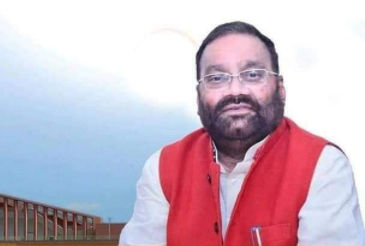Swami Prasad Maurya, the senior OBC leader who quit the BJP and
joined Samajwadi Party (SP) barely months before the Uttar Pradesh Assembly
elections, was presumed to create a tectonic shift in the state’s political
landscape. Now, the former minister is leaving his stronghold to go fight a
seat the BJP has won twice consecutively.
The Samajwadi Party announced Tuesday that Maurya will be
fielded from Fazilnagar in Kushinagar district. The 68-year-old high-profile
OBC leader, who pledged to turn UP’s political tide while jumping ship, is
moving away from Padrauna for one critical reason — RPN Singh, political
observers say.
Also Read | Swami Prasad Maurya, OBC leader who jumped ship to SP, to contest from Fazilnagar
Ranjit Pratap Narain Singh, the BJP’s candidate from Padrauna is
a member of Padrauna’s royal family. A critical member of the Congress in UP
until recently, RPN Singh was said to be close to Rahul Gandhi.
The BJP believes that RPN Singh will be able to steer a section
of the OBC vote towards them. Singh has won the Padrauna constituency thrice —
1996 to 2009. In 2009, he had in fact defeated the very same Swamy Prasad
Maurya.
Political observers in Uttar Pradesh say Swamy Prasad Maurya is
not going up against RPN Singh because he does not wish to lose the perception
battle prior to the elections. Singh, although being cast as a giant-slayer,
has lost a considerable section of his voters over the last two elections. RPN
Singh’s vote share dropped from 17% to 8% during this time, local media reports
claim.
Nevertheless, Maurya’s decision to steer clear of Padrauna for
Fazilnagar holds immense political significance. While walking out of the BJP,
Maurya had said that he had attempted to work with the Yogi Adityanath-led
government despite having “opposite ideologies” but was miffed with the BJP
government’s attitude towards Dalits and other backward classes.
His exit was made out to be a clear sign of the BJP losing a bit
of control in UP, however, Maurya’s decision now shows that it remains as
difficult as ever to call the polls in India’s biggest state, that often serves
as a bellwether for national politics.
The 403-seat Uttar Pradesh Assembly goes to polls in seven
phases starting February 10. Results will be announced on March 10.







